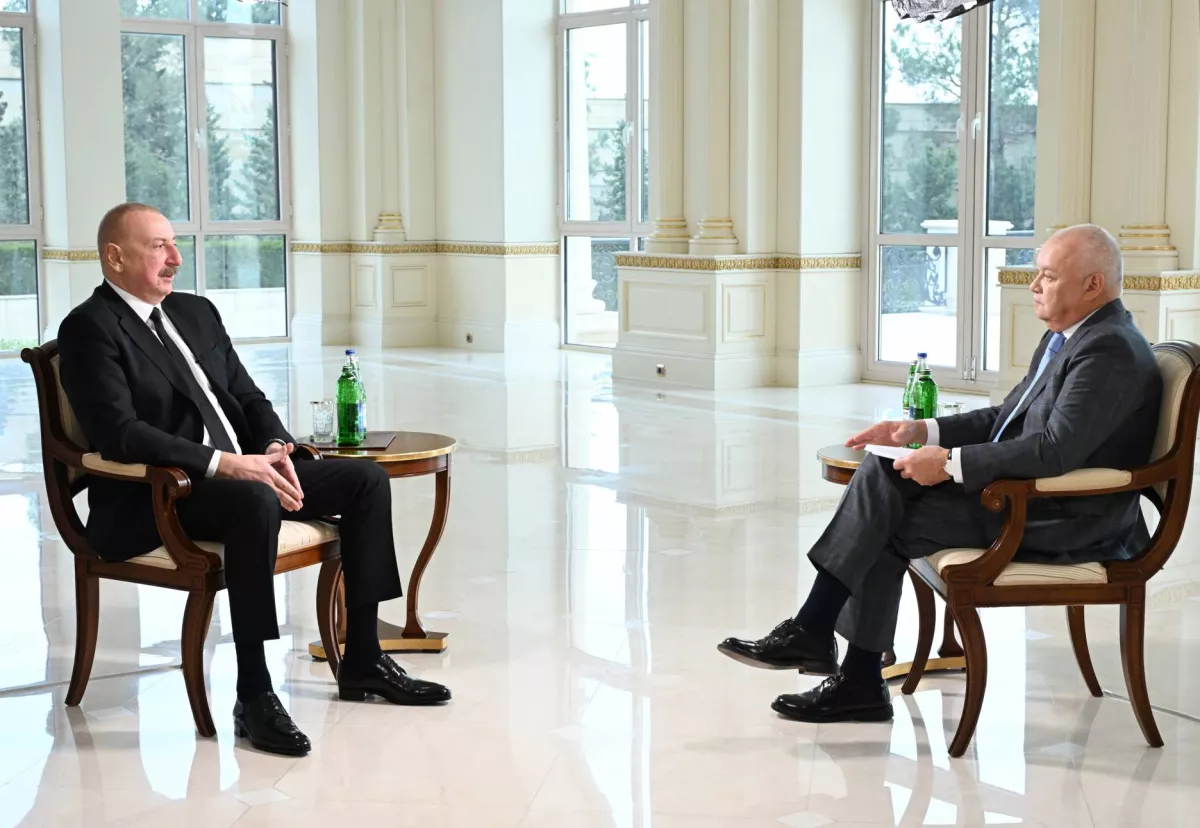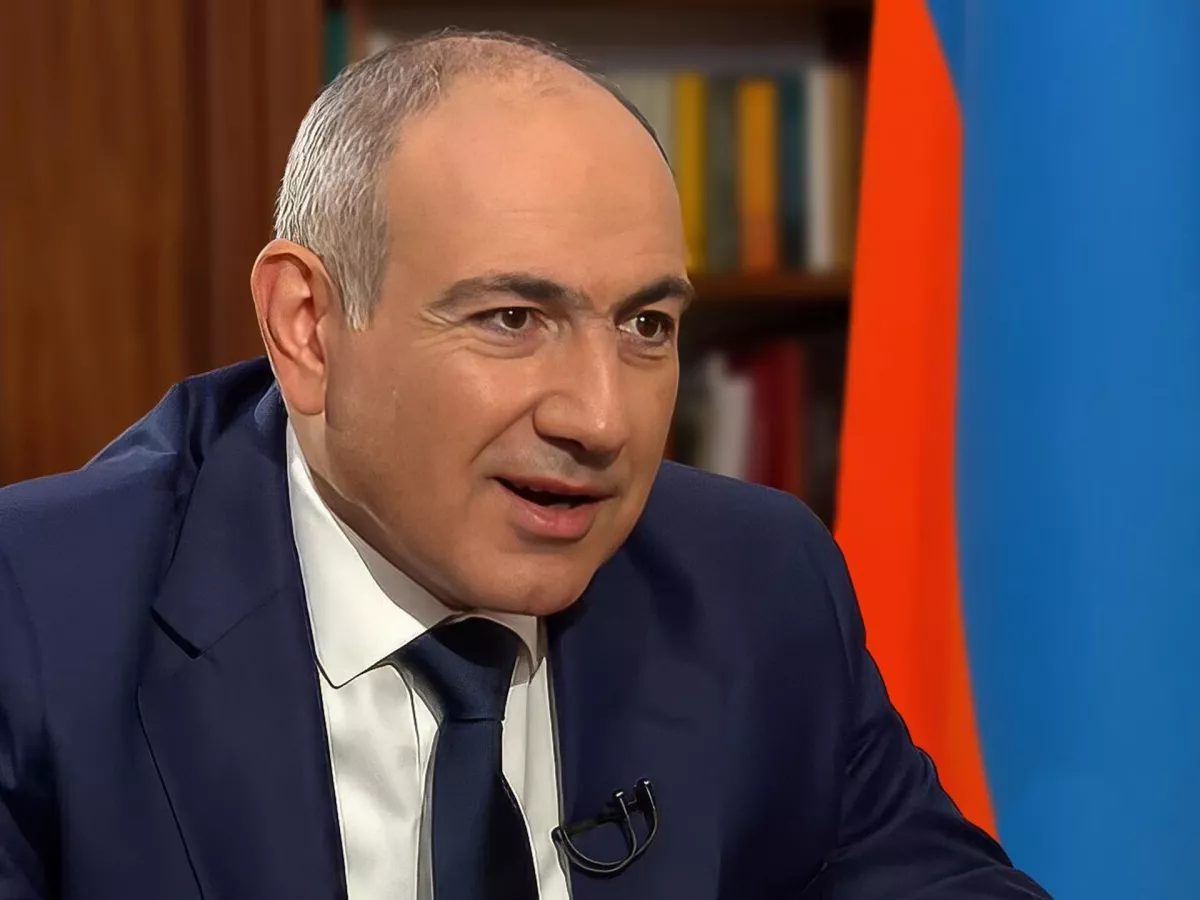Pashinyan's another round of deceptive manoeuvres The same old broken record
Ahead of his interview with Armenpress, Armenian Prime Minister Nikol Pashinyan sought to present himself as genuinely committed to signing a peace agreement with Azerbaijan. However, this stance is nothing new for him. The shift in his position was, of course, a forced one, resulting from Armenia’s defeat in the 44-day war.
Even after this military setback and the signing of the Trilateral Statement by Pashinyan on the night of November 10, 2020, there were repeated instances of blatant hypocrisy on his part. In essence, Yerevan continued to provide political, financial, and military support to the Karabakh junta. Azerbaijan issued multiple warnings regarding the inadmissibility of such actions, but Yerevan chose to ignore the reality. Ultimately, a one-day counterterrorism operation was carried out in the Karabakh region, which led to the full restoration of Azerbaijan’s sovereignty and territorial integrity. It was only after this that Pashinyan assumed the role of the "dove of peace." In Baku, his transformation was met with calm indifference, with the suggestion that he undergo another test of sincerity.
Pashinyan's interview with Armenpress was essentially another test. The Armenian Prime Minister was essentially responding to the points made by Azerbaijani President Ilham Aliyev in an interview with Dmitry Kiselev, the Director-General of the International News Agency Russia Today. It is worth recalling what the Azerbaijani president said. He pointed out that a peace agreement, on the one hand, and Armenia simultaneously arming itself against Azerbaijan, on the other, are two fundamentally incompatible paths.

In his statement, Pashinyan asserts that Armenia is not engaged in an arms race with any country. “We are acquiring armaments exclusively for defending Armenia’s borders and territorial integrity, meaning for defensive goals, and our goals are transparent,” he claims.
Pashinyan also insists that defence can’t be organized with only defensive weapons. Therefore, Armenia purchases offensive weapons, according to him. This argument is, to put it mildly, unconvincing. Especially when recalling that it was under Pashinyan’s orders that missile strikes were carried out during the 44-day war on peaceful Azerbaijani cities, resulting in the deaths and injuries of elderly people, women, and children in Azerbaijan.
Moving on, Azerbaijani President Ilham Aliyev emphasized the importance of not allowing foreign personnel to be deployed on the Armenian-Azerbaijani border. His reasoning was clear and well-founded. The Azerbaijani president reminded that during a quadripartite meeting in October 2022, it was decided that a 40-member European Union observer group would be deployed on the Armenian-Azerbaijani border for a two-month period.
But what happened next? The mandate of this mission was extended without Azerbaijan's consent, and its personnel increased to 200 members. “The mission seamlessly transformed into a NATO mission, as representatives from Canada also joined,” as Azerbaijani President Ilham Aliyev rightly pointed out. How did Pashinyan respond to this? He suggested extending the provision prohibiting the deployment of third-country forces to demarcated sections of the Armenian-Azerbaijani border.
This implies that Pashinyan has no intention of rejecting the services of the espionage mission, whose duration and size were not agreed upon with Azerbaijan. This, to put it mildly, is an unconstructive approach. It concerns the importance of establishing an atmosphere of mutual trust between the countries. But how can one trust those who frequently change their stance and make decisions without consulting with you?
Apparently, in an attempt to create the appearance of cooperation, Pashinyan accepted Azerbaijan's demand to dismantle the OSCE Minsk Group. However, a simple question arises: why delay making such an obvious decision? It’s possible that Pashinyan coordinated this move with Macron. While this could be seen as a positive step in general, it becomes less so when we hear yet another round of verbal manipulation from Pashinyan on the most crucial issue hindering the signing of a peace agreement.
This issue concerns the need for amendments to Armenia's Constitution. As Azerbaijani President Ilham Aliyev rightly pointed out, the Constitution references the Declaration of Independence, which, in turn, contains territorial claims against Azerbaijan. “[It] declares the former Nagorno-Karabakh Autonomous Region as part of Armenia. Therefore, changing the Constitution is not a matter of our whim but an objective necessity,” the Azerbaijani president stated in an interview with Dmitry Kiselev.
What did we hear from Pashinyan? He once again resorted to "dodging the issue." He claimed that the Constitutional Court of Armenia, in its ruling on September 26, 2024, established that the reference to the Declaration of Independence in the preamble of the Constitution applies exclusively to those provisions of the Declaration that were explicitly incorporated into the Constitution's articles. Moreover, Pashinyan emphasized that no article of the Constitution of Armenia directly or indirectly mentions Karabakh.

It is important to remember that Armenia’s legislation provides for a procedure for denouncing (nullifying) international agreements. Therefore, the presence of territorial claims in the Armenian Constitution could serve as grounds for future authorities to invoke these claims and potentially reject a peace agreement. In other words, by refusing to address the central issue preventing the signing of a peace agreement, Pashinyan demonstrates his insincerity and his readiness to create the conditions for future conflicts. This is entirely possible if a new Armenian government were to consider all agreements signed by their predecessors, including the peace agreement with Azerbaijan, as inconsistent with Armenia's laws.
Moreover, we clearly remember what the now-former Armenian Minister of Justice, Grigor Minasyan, stated during a meeting of the Constitutional Commission. He rejected the proposal to amend the Constitution and declared that the Constitution would not be changed until 2027, the year when Armenia plans to hold a constitutional referendum. Is there any guarantee that, following the referendum, the citizens of Armenia will vote to eliminate the provisions that hinder the signing of a peace agreement between Baku and Yerevan? There is no such guarantee. This, among other reasons, makes the rush by Armenia’s leadership to sign a truncated peace agreement, without addressing the core issue, seem, to put it mildly, inappropriate. However, in Baku, no one is in a hurry. Azerbaijan is prepared for any possible outcome.








